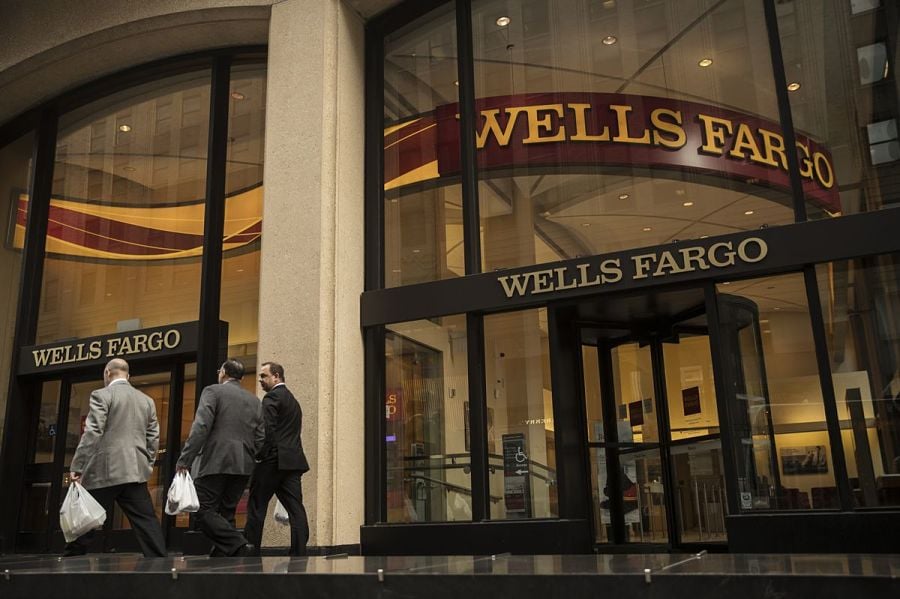

As stocks reel amid the fears provoked by the coronavirus, let’s pause a moment and look at how three of the largest, most prominent brokerage firms have spent the past few years preparing for this very moment: an intense market sell-off that shakes advisers and clients to their cores.
It’s clear that Merrill Lynch and Morgan Stanley have carefully crafted business strategies for their financial advisers and are working on their execution. It’s also clear that Wells Fargo Advisors, which has seen hundreds of brokers and financial advisers leave in the past 3½ years, is trying to emerge from a mess.
And that’s in large part due to the continued dilemma facing its parent bank, Wells Fargo & Co. On Tuesday, the bank's new CEO, Charles Scharf, was dragged over the coals by the House Financial Services Committee for the account opening scandal and other wrongdoing that occurred long before Mr. Scharf joined the giant leaking ship last fall.
In his prepared testimony, Mr. Scharf admitted the depths of the problems at Wells Fargo.
“Simply said, we had a flawed business model in how the company was managed,” he said. “Our structure was problematic, and the company’s leadership failed its stakeholders. Our culture was broken, and we did not have the appropriate controls in place across the company.”
While Wells Fargo, the bank, and its retail brokerage network of more than 13,000 financial advisers continue to dig out of a hole, its competitors have been busy.
At Merrill Lynch, the focus has been on rewarding advisers for bringing in new households and clients; they are also encouraged to cross-sell banking products. Morgan Stanley wants its brokers to use its new technology, do financial planning and grab a bigger share of the clients’ overall finances, known as the “wallet” in the industry.
Some advisers at Merrill and Morgan Stanley don’t like the changes, complaining there is too much emphasis on selling banking products and not enough on financial advice. That’s fine. Those advisers can either grin and bear it, or leave.
While its competitors posted record financial results during the bull market, which is now dead, Wells Fargo’s wealth and investment management group, which includes Wells Fargo Advisors, has seen mixed results. Retail brokerage advisory assets hit a high of $590 billion at the end of last year, up 18% from 2018. At the same time, the wealth and investment management group took a $166 million charge related to technology equipment. Advisers grumble about the out-of-date tech at the firm.
With the stock market now in bear territory, having sold off 25% from the market peak in February, the rest of the year is going to be excruciatingly tough for advisers and their firms.
One adviser has not been happy with the recent efforts at the firm in the wake of the banking scandal.
“We lost existing business and referrals,” said the adviser, who spoke anonymously because the banks do not allow advisers to speak to the press. “There’s been no additional funds to support business, no advertising, and no technology and improvements in process.”
Senior executives at Wells Fargo Advisors, while admitting that there was no question the parent bank’s account opening scandal has had a negative impact, privately say that their strategy is not that dissimilar from the approaches of their chief rivals, Merrill Lynch and Morgan Stanley. (As part of a series of management moves, Wells Fargo promoted Jim Hays last summer to be president of the brokerage network, replacing David Kowach.)
The focus is financial planning, generating revenue through banking and tapping into the bank’s areas of strength, such as being a top mortgage underwriter, to find new clients. The goal is to boost community banking referrals to advisers. And recruiting financial advisers has improved.
The problem for Wells Fargo Advisors is that their competitors have been focusing on these same areas for the past three or four years. With Mr. Scharf and Mr. Hays now in charge, can it make up lost time?
“Wells Fargo is a great institution with many opportunities ahead,” Mr. Scharf said on Capitol Hill Tuesday. “I know that we can and will do what it takes to create the right environment inside the company that will allow us to provide leadership in the marketplace for years to come.”
I'm sure the financial advisers at Well Fargo Advisors will place Mr. Scharf and Mr. Hays under intense scrutiny in the months to come. True leadership in the financial advice industry emerges in times of financial crisis, and that's exactly where we are now.

Executives from LPL Financial, Cresset Partners hired for key roles.

Geopolitical tension has been managed well by the markets.

December cut is still a possiblity.

Canada, China among nations to react to president-elect's comments.

For several years, Leech allegedly favored some clients in trade allocations, at the cost of others, amounting to $600 million, according to the Department of Justice.
Streamline your outreach with Aidentified's AI-driven solutions
This season’s market volatility: Positioning for rate relief, income growth and the AI rebound
